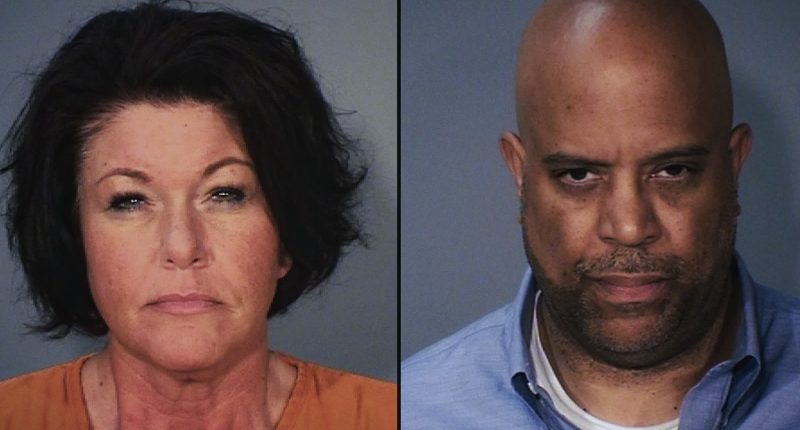Share this @internewscast.com
Laura Fero, the former dean of nursing at St. Catherine University, faces serious allegations of embezzling over $400,000 from the school.
Alongside her boyfriend, Juan Bruce of Shakopee, she stands accused of orchestrating a three-year scam. The controversy erupted as details emerged about misused funds tied to the school’s GHR Legacy Grant. Bruce was acquitted of theft charges, but Fero’s case continues. This scandal shakes the St. Paul institution.
As dean, Fero was responsible for budgeting and managing the GHR Legacy Grant at St. Catherine University. Prosecutors accuse her of abusing her role to channel substantial funds to Bruce. The criminal complaint alleges Bruce set up a fraudulent marketing company to siphon off more than $412,000. Fero is said to have awarded him three university contracts over three years, keeping them hidden from her peers.
The complaint notes, “Fero directed a significant amount of financial resources to Bruce over several years, despite Bruce providing little or no actual services to the university.” This breach of trust is central to the accusations against her and demonstrates a concerning misuse of her authority.
#9 – The former Dean of Nursing at St. Catherine’s University in Minnesota stole over $400,000 from the school—and won’t serve a single day in jail.
She was sentenced up to three years probation, and ordered to repay just $25,000 of what was stolen. Wow.
Credit: @GrageDustin pic.twitter.com/sNJOby9Wwf
— The Vigilant Fox (@VigilantFox) June 18, 2025
Throughout the alleged scheme, both Fero and Bruce indulged in multiple vacations to destinations such as Miami, Atlanta, Phoenix, Cancun, and Orlando. Court documents disclose that Fero used her St. Kate’s credit card to pay for flights, rental vehicles, and hotel stays. These expenditures, amounting to $18,189 in dubious charges, attracted attention.
The couple’s lavish lifestyle contrasted sharply with the lack of services Bruce allegedly provided, strengthening the case against Fero’s misuse of funds. Consequently, this pattern of spending fueled further suspicion. Additionally, it deepened the financial irregularities.
Fero left St. Kate’s in August 2023 to join AdventHealth University in Orlando, Florida. Yet, the scheme allegedly persisted. Prosecutors claim she continued aiding Bruce by drafting a document to justify his supposed services.
This action occurred after the university requested clarification. The complaint accuses Fero of concealing the contracts by “abusing Fero’s position of trust and authority,” extending her alleged misconduct beyond her tenure at St. Kate’s. Therefore, her departure did not end the deception. Instead, it prolonged the cover-up.

Juan Bruce faced six counts of theft by swindle but was acquitted in July 2024. The court found him not guilty on all charges related to the embezzlement scheme. The original complaint had linked him and Fero to misappropriating funds through the fake marketing company. Despite this, Fero’s legal battle continues.
Her next court appearance is scheduled for August 13 at 9 a.m., keeping the case in the spotlight. However, this acquittal complicates the narrative. Nevertheless, it shifts focus to Fero’s accountability.
This scandal tarnishes St. Catherine University’s reputation. The misuse of the GHR Legacy Grant, intended to support health education, undermines its mission. The university now faces scrutiny over internal controls. The case highlights vulnerabilities in financial oversight, prompting calls for reform.
Students and faculty express concern over the diverted funds’ impact on educational programs. As a result, the institution must address these weaknesses. Moreover, it must rebuild trust.
Fero’s actions raise significant legal and ethical issues. Her alleged exploitation of a trusted role sparks debate about accountability in academia. The acquittal of Bruce complicates the narrative, leaving questions about his involvement.
Legal experts suggest Fero’s case could set precedents for handling similar frauds. The outcome may influence how universities safeguard their grants moving forward. Thus, this case carries broad implications. Furthermore, it challenges institutional integrity.

















